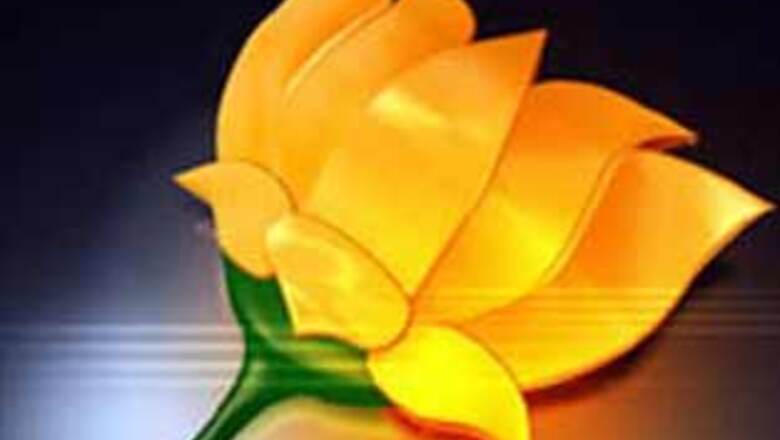
views
New Delhi: In what promises to be a keen electoral contest to determine who rules India, the Bharatiya Janata Party (BJP) has already taken an early lead over the Congress -- in cyberspace warfare.
With general elections involving some 700 million voters only two months away, the BJP - perhaps taking a leaf from the Barack Obama style of campaigning - is targeting voters who are mostly young and net savvy.
"Advani for prime minister" is the theme of five campaigns by the BJP on more than 2,000 websites, including those of the US, British and Pakistani media which Indians often frequent.
Prodyut Bora, convenor of the BJP's IT cell, said: "We are the leaders in the use of Internet for elections."
So far there has been no similar effort from the Congress. But the party has shown it can use the Internet if it wishes.
In the Rajasthan assembly contest late last year, it launched an Internet campaign with video ads.
To go with the web ads, Advani, 81, has started a blog -- the first senior Indian politician to do so.
On January 7, he wrote: "My young colleagues who created this website told me that a political portal without a blog is like a letter without a signature. I am excited by the idea of using the Internet for the election campaign."
But the question remains - will the Internet campaign bring in the votes?
V K Malhotra, the BJP's chief ministerial candidate in Delhi last year, launched a website to woo voters. It did not help. Incumbent Chief Minister Sheila Dikshit of the Congress won again.
Arun Kumar of the School of Social Sciences in New Delhi's Jawaharlal Nehru University (JNU) says the BJP campaign is unlikely to help it garner too many votes because "Internet-savvy people are a small portion of the population".
According to him, what really matters are face-to-face interactions based on issues that matter to the people. Similarly, he says, the lack of an Internet campaign is unlikely to harm the Congress.
All major parties such as the Communist Party of India-Marxist (CPI-M), Samajwadi Party, Bahujan Samaj Party (BSP) and the Nationalist Congress Party (NCP) have their official websites.
The CPI-M website has comments on a whole range of issues.
On the coming Lok Sabha polls, it says: "The party should conduct a vigorous political campaign in the run up to the Lok Sabha polls.
We should call for the defeat of the BJP and the NDA (National Democratic Alliance) to ensure that the communal forces are kept out of power at the centre.
The campaign should attack the UPA (United Progressive Alliance) government's anti-people economic policies.
The Left parties, along with the secular parties, should work together to make a non-Congress, non-BJP alternative realisable."
The Samajwadi Party's official website says: "This website aims to communicate with the masses and let people understand the party better. As time changes, technology changes; Samajwadi Party believes in staying up to date with technology and using it for betterment."
The website of Agriculture Minister Sharad Pawar's NCP welcomes visitors to "join our cause and make a difference".
Navneet Kaushal, founder CEO of Page Traffic, told IANS: "Political parties have been using online media since 2003. The online Congress campaign in the last state elections showed it can gather a momentum of its own.
However, Advani's campaign is the first of its kind on a national scale and borrows heavily from Barack Obama's style. We will have to see if it connects with the Indian people."
Dipankar Gupta, also of the School of Social Sciences in JNU, says: "The Congress seems to think there is not much advantage to be had by going for an Obama-style Internet campaign.
The BJP campaign is unlikely to help it secure too many votes, just as it is unlikely that Congress's prospects will be harmed as most real voters don't surf the Internet."




















Comments
0 comment